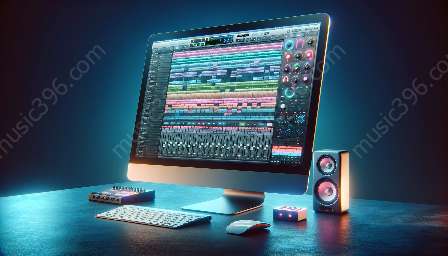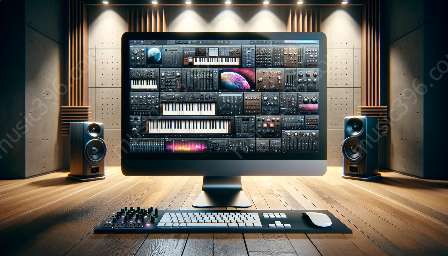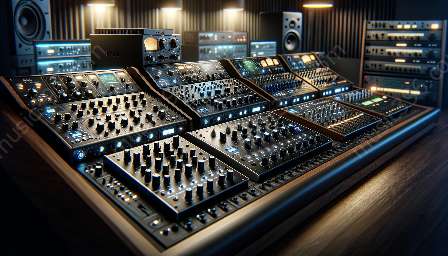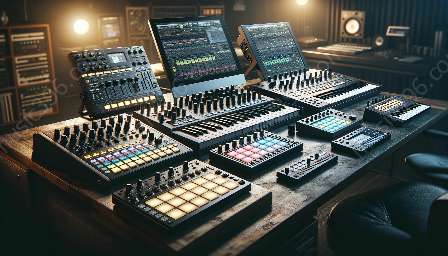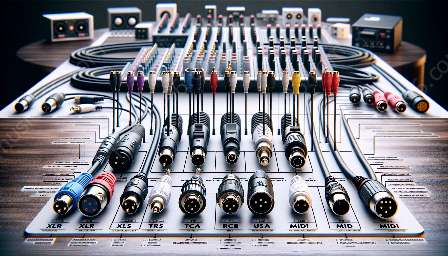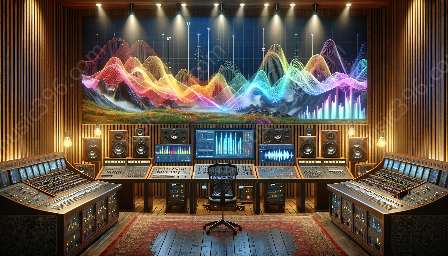The world of music entrepreneurship and business innovation has been significantly influenced by the emergence and evolution of music production software. This technology has reshaped the way music is created, produced, and distributed, and has opened up new avenues for musicians, producers, and entrepreneurs to explore and thrive within the industry.
Revolutionizing the Music Production Process
One of the most significant implications of music production software is its impact on the music creation process. Traditional recording studios and costly, complex equipment were once barriers to entry for many aspiring musicians and producers. However, with the advent of user-friendly and affordable music production software, the barriers have been significantly reduced. Artists can now create and produce high-quality music from the comfort of their homes, eliminating the need for expensive studio time and allowing for greater creative freedom.
Moreover, music production software has democratized the music creation process, allowing individuals with limited resources to compete on a level playing field with established artists and producers. This has led to a surge in creativity and innovation within the industry as musicians from diverse backgrounds and experiences have been able to share their unique perspectives through their music, thus enriching the music landscape.
Expanding Business Opportunities
From a business perspective, music production software has opened up a myriad of opportunities for entrepreneurs and innovators. The software has facilitated the rise of independent record labels, production companies, and distribution platforms, allowing individuals to build their own music businesses without the need for extensive capital or resources. This has not only empowered individuals to pursue their entrepreneurial ambitions but has also led to the diversification of the music industry, with a greater variety of music styles and genres becoming accessible to audiences worldwide.
Furthermore, music production software has enabled musicians and producers to retain greater control over their creative works, leading to the emergence of new business models and revenue streams. Through self-publishing, licensing, and direct-to-fan distribution channels, artists can now directly engage with their audience and monetize their music independently, reducing their reliance on traditional music industry structures and intermediaries.
Enhancing Music Entrepreneurship
Music entrepreneurship has been significantly enhanced by the use of music production software. The ability to create, market, and distribute music independently has empowered musicians to take charge of their careers and forge direct connections with their fan base. Additionally, the software has allowed entrepreneurs to experiment with new and innovative approaches to music production, leading to the development of niche markets and personalized music experiences.
Moreover, the integration of music production software with technology such as virtual reality (VR) and augmented reality (AR) has enabled entrepreneurs to create immersive and interactive music experiences for audiences, opening up new avenues for revenue generation and audience engagement. This convergence of music and technology has propelled music entrepreneurship into a dynamic and cutting-edge space, attracting a new wave of creative and tech-savvy entrepreneurs.
Challenges and Considerations
While music production software has brought about numerous benefits for music entrepreneurship and business innovation, it has also presented challenges and considerations for industry stakeholders. The democratization of music production has led to a saturation of the market, making it increasingly challenging for artists to stand out and gain visibility amidst the wealth of content available. Additionally, the accessibility of music production software has blurred the lines between amateur and professional music production, raising questions of quality control and artistic integrity.
Furthermore, the rise of digital piracy and unauthorized distribution channels has posed threats to the revenue streams of musicians and entrepreneurs, necessitating the implementation of robust digital rights management and anti-piracy measures to safeguard creative works.
Conclusion
In conclusion, music production software has had profound implications for music entrepreneurship and business innovation. It has revolutionized the music production process, expanded business opportunities, and enhanced music entrepreneurship. While presenting challenges, the software has ultimately reshaped the music industry, empowering individuals to pursue their creative and entrepreneurial aspirations. As technology continues to advance, the intersection of music, entrepreneurship, and innovation will undoubtedly lead to further transformative developments within the music industry.


